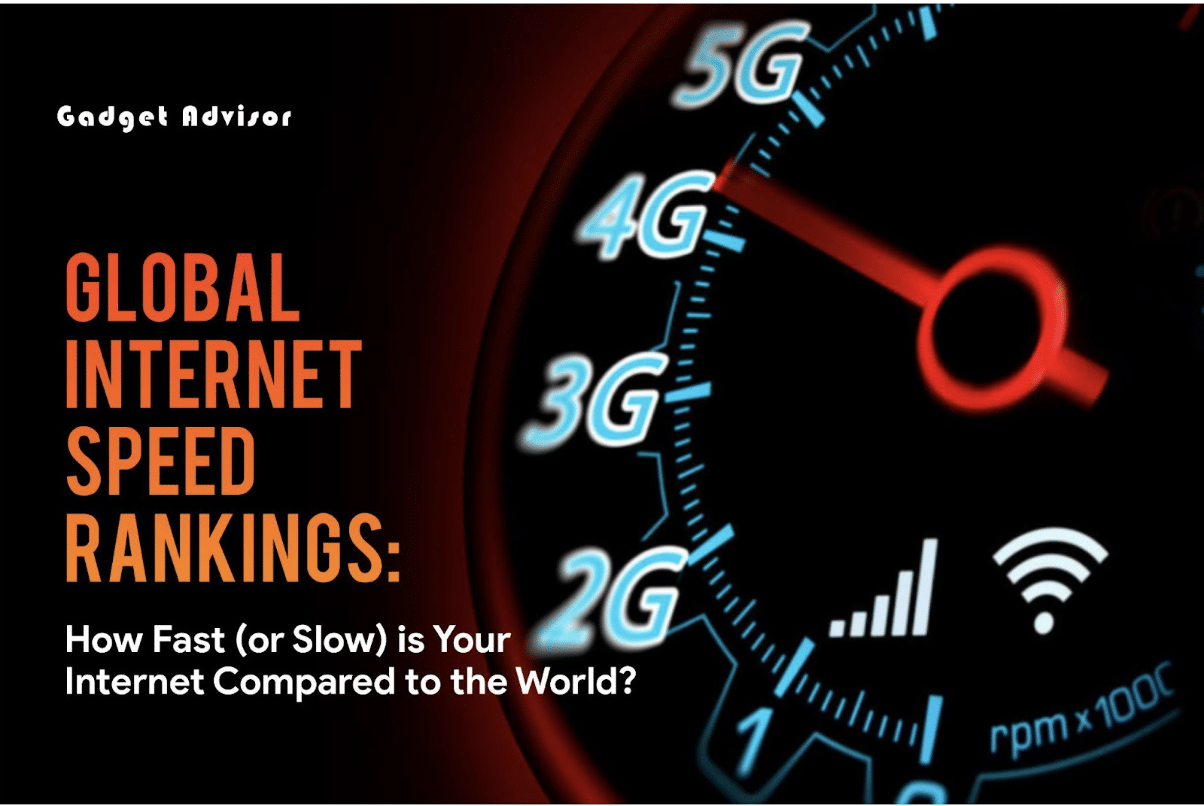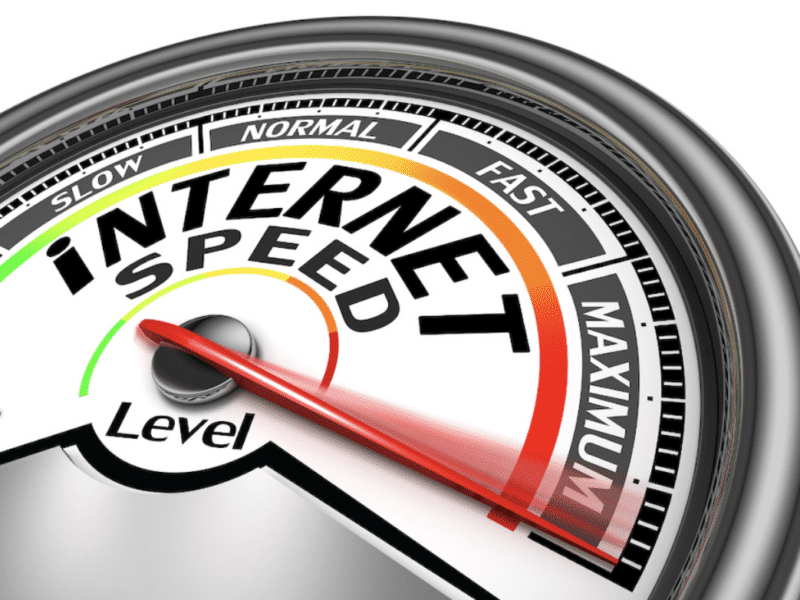Today, speed is everything. Need to maximize a digital opportunity? Speed. Download a document? Speed. Stream your favourite show? Also speed. The amount of time speed, especially internet speed, is going to save you is invaluable. A study by SanDisk found that slow internet speeds can lead to employees wasting an average of one week per year waiting for their company’s network to respond. This means faster internet speeds can save significant amounts of time in a professional setting, leading to increased productivity.
As if inspired by time and speed, the global race for faster connectivity continues unabated, with countries pushing the boundaries of technology to achieve unprecedented speeds. In fact, the global average broadband internet speed is 45.6 Mbps, a significant leap from previous years 11. This surge in speed is largely attributed to the developed nations, with their robust infrastructure, enabling them to adopt and roll out the latest tech marvel. However, the story is not the same across the globe. In fact, the number of countries with the fastest internet speeds far exceeds those with the slowest.
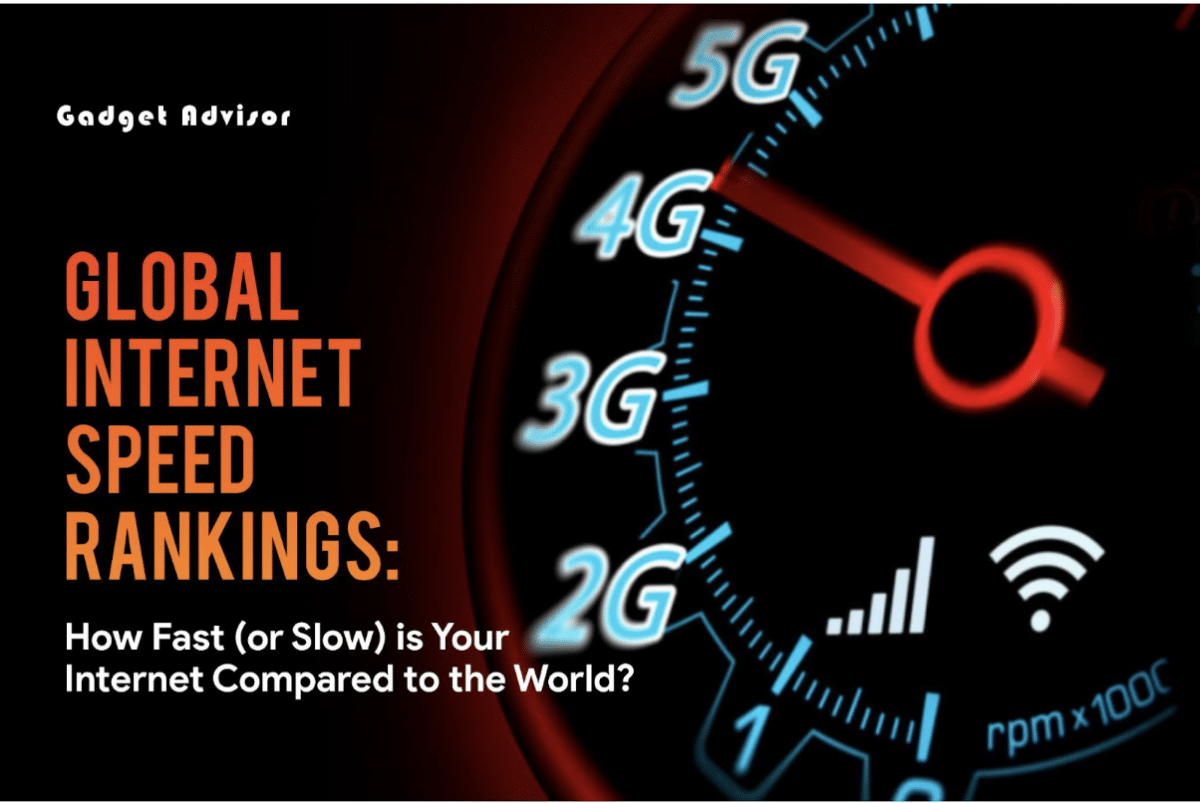
Interestingly, the size of a nation plays a key role in its internet speed. Smaller, more developed countries often find themselves in the fast lane, while larger, less developed nations tend to lag behind. This is because it’s easier to roll out full-fibre broadband and 5G in smaller countries, while larger nations face challenges due to sprawling geography, diverse terrain, and widespread populations. As we continue to navigate the digital age, this piece analyses countries and regions with the fastest internet speeds, as well as those with the slowest speeds, based on the Cable 2023 report.
Quick Overview
- Jersey, a small Island, leads countries with world’s fastest internet speeds with a mean download speed of 264.52 Mbps
- Seven out of the top ten countries with the fastest internet speeds are in Europe
- Macau and Taiwan are the leading Asian countries in internet speed rankings
- The United States and Canada rank twelfth and thirteenth in global internet speed rankings
- Afghanistan has the slowest average download speed at 1.71 Mbps
- Western Europe leads in regional average download speed with 118.69 Mbps
- Seven out of the ten countries with the slowest internet speeds reside in Africa
- The global average time to download a 5GB movie varies widely from 2.4 minutes in Jersey to 398.58 minutes in Afghanistan
Top 20 Countries with the Fastest Internet Speeds
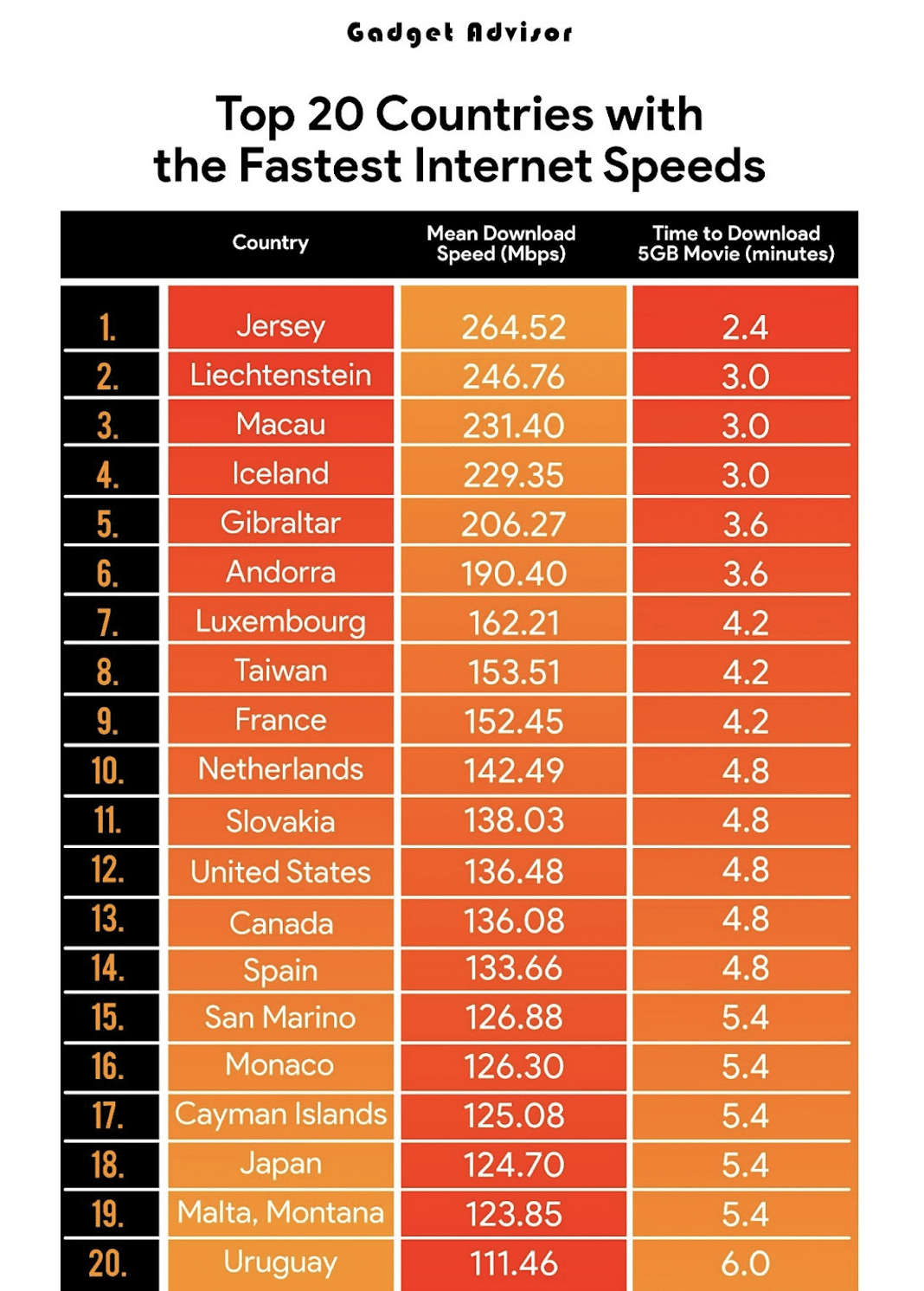
The Island of Jersey tops the list of countries with the fastest internet speeds with a mean download speed of 264.52 Mbps, which allows a 5GB movie to be downloaded in just 2.4 minutes. Following closely are Liechtenstein and Macau, with mean download speeds of 246.76 Mbps and 231.40 Mbps, respectively, both translating to a download time of 3.0 minutes for a 5GB movie1234.
Iceland and Gibraltar complete the top five, with mean download speeds of 229.35 Mbps and 206.27 Mbps, respectively. The rest of the top ten is made up of Andorra, Luxembourg, Taiwan, France, and the Netherlands.
Seven Countries with the Fastest Internet Speeds Are in Europe
The majority of the countries with the fastest internet speeds are located in Europe, with seven out of the top ten being European nations. This includes countries such as Jersey, Liechtenstein, Iceland, Gibraltar, Andorra, Luxembourg, France, and the Netherlands. Despite the economic diversity within Europe, these countries have managed to excel in internet speed, particularly in Western Europe’s economic and financial hubs.
Small nations like Liechtenstein, Jersey, and Andorra have shown significant progress in this digital race despite their limited geographical and population sizes. This ‘small nation, big speeds’ phenomenon can be attributed to several factors. One key factor is the small population relative to internet usage. Another is the commitment to invest in telecommunications infrastructure. For example, Liechtenstein’s government has been actively fostering a favorable regulatory environment and providing financial support for new technologies. They have also initiated projects to strengthen digital infrastructure, such as establishing a national cloud platform and using blockchain technology for data management.
Moreover, the European Commission’s goal of achieving gigabit connectivity for all EU households by 2030 demonstrates the continent’s determination to enhance internet speed and accessibility. In 2021 alone, approximately 70% of EU households had access to high-speed internet coverage, a significant increase from the 16% recorded in 2013. These initiatives reflect the substantial investments and policy frameworks aimed at promoting a digitally inclusive society, which subsequently boosts the internet speed metrics in these countries.
Macau and Taiwan Leads in Internet Speed in Asia While the United States and Canada Trail at Twelve and Thirteen
Macau and Taiwan are leading the charge in Asia, securing the 3rd and 8th positions respectively in the global internet speed rankings. Macau boasts a mean download speed of 231.40 Mbps, while Taiwan follows closely with 153.51 Mbps. These impressive speeds can be attributed to robust internet infrastructures and significant investments in digital technologies.
Taiwan, a global linchpin in the electronics and IT sectors, has declared internet connectivity as a national security concern. This has led to substantial investments in sea-based cable lines and Low Earth Orbit (LEO) telecommunications services, colloquially termed as 6G. On the other hand, Macau’s digital landscape is underpinned by a surge in data processing volume, driving substantial investments in new data centers.
In contrast, North America’s giants, the United States and Canada, find themselves trailing at positions twelve and thirteen respectively. Despite their technological prowess, they have mean download speeds of 136.48 Mbps and 136.08 Mbps respectively. However, both countries are making concerted efforts to bridge this digital divide.
In 2022, the U.S. witnessed a record investment of $102.4 billion in its communications infrastructure. Moreover, the Bipartisan Infrastructure Deal earmarks $65 billion to enhance broadband infrastructure. Similarly, Canada is accelerating its digital transformation with the Universal Broadband Fund, a $2.75 billion project to ensure high-speed connectivity for all.
Digital Divide and the Low Cost of High Internet Speed
The dataset offers a revealing perspective on how the digital divide varies across regions. Countries like Jersey and Liechtenstein, which are at the forefront with higher average download speeds, experience a digital environment where downloading a 5GB movie takes only 2.4 to 3.0 minutes. On the other hand, countries like Uruguay, which are lagging behind, require about 6.0 minutes to download the same 5GB movie – nearly three times longer than in Jersey. These statistics highlight the disparities in digital access and its influence on practical internet usage for essential tasks such as streaming, downloading documents, or participating in video conferences, which have become integral to today’s work and social settings.
The correlation between internet speed and streaming quality is straightforward. For uninterrupted streaming, particularly in high-definition (HD) or 4K, substantial internet speed is crucial. A decent internet speed for 4K streaming on a single device is set at a minimum of 25 Mbps, while for multiple devices or heavy internet traffic, 50 Mbps is suggested. As internet speeds continue to increase – with the average download speed in the U.S. rising by 35% last year to exceed 95 Mbps – the standard for what constitutes ‘good internet speed’ continues to increase.
Top 20 Countries with the Slowest Internet Speeds
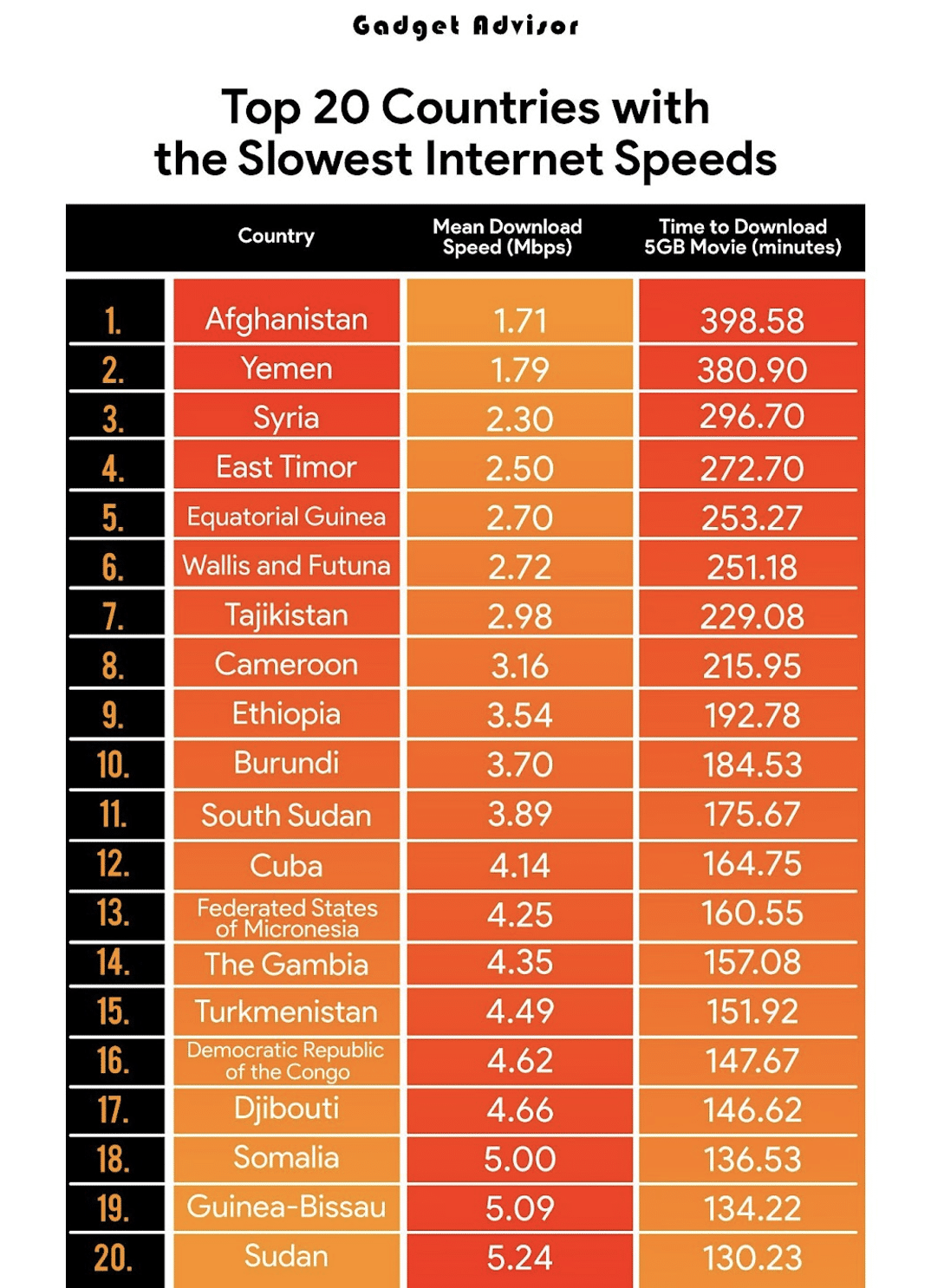
Afghanistan tops the list of countries with the slowest average download speeds, clocking in at 1.71 Mbps. This means it would take roughly 398.58 minutes to download a 5GB movie. Yemen, Syria, East Timor, and Equatorial Guinea follow closely behind, with speeds between 1.79 and 2.70 Mbps and download times ranging from 253.27 to 380.90 minutes. The list concludes with Wallis and Futuna, Tajikistan, Cameroon, Ethiopia, and Burundi, where speeds vary from 2.72 to 3.70 Mbps and download times span from 184.53 to 251.18 minutes.
Seven African Countries, Three Asian with Slowest Internet Speeds
Eight African nations, including Burundi, Ethiopia, and Cameroon, struggle with slow internet speeds that do not exceed 4 Mbps on average. This sluggish connectivity reflects the challenges these countries face, such as inadequate infrastructure, insufficient investment in digital technologies, and socio-political issues that hinder progress.
Countries like Ethiopia and Cameroon have significant potential due to their strategic locations and young populations. However, the absence of a strong digital infrastructure hampers their aspirations for a digitally empowered society. On the other hand, political unrest in countries like Burundi has stifled digital progress.
In Asia, Yemen and Taiwan illustrate the diverse range of internet speeds across the continent. Yemen’s ongoing conflict, lack of infrastructure, and limited resources result in one of the world’s slowest internet speeds at an average of 1.79 Mbps.
Four Island Nations and War-Torn Countries like Afghanistan Suffer Slow Internet Speeds
Island nations and war-torn countries also exhibit slower internet speeds. For instance, Wallis and Futuna, an isolated island territory, and Syria, a country grappling with the aftermath of a prolonged conflict, show how geographical isolation and political unrest negatively impact digital connectivity. The sluggish internet speeds in these regions not only hinder entertainment but also impede access to essential digital services, accentuating the digital divide. The same fate applies to the Taliban-controlled Afghanistan, which is facing one of the world’s worst humanitarian crises.
The stark contrast between the fastest and slowest countries in internet speed is more than just a matter of convenience—it’s a reflection of deeper socio-economic and geopolitical issues. In the fastest country, Jersey, a 5 GB movie takes a mere 2.4 minutes to download, while in the slowest, Afghanistan, it takes a staggering 398.58 minutes. This disparity highlights the digital gap that exists globally, with high-speed internet still a distant dream for many. In a world that’s increasingly online, bridging this digital divide is imperative for fostering global inclusivity and ensuring that no one is left behind in the digital race.
Average Internet Speed and Time to Download 5GB Movie by Region
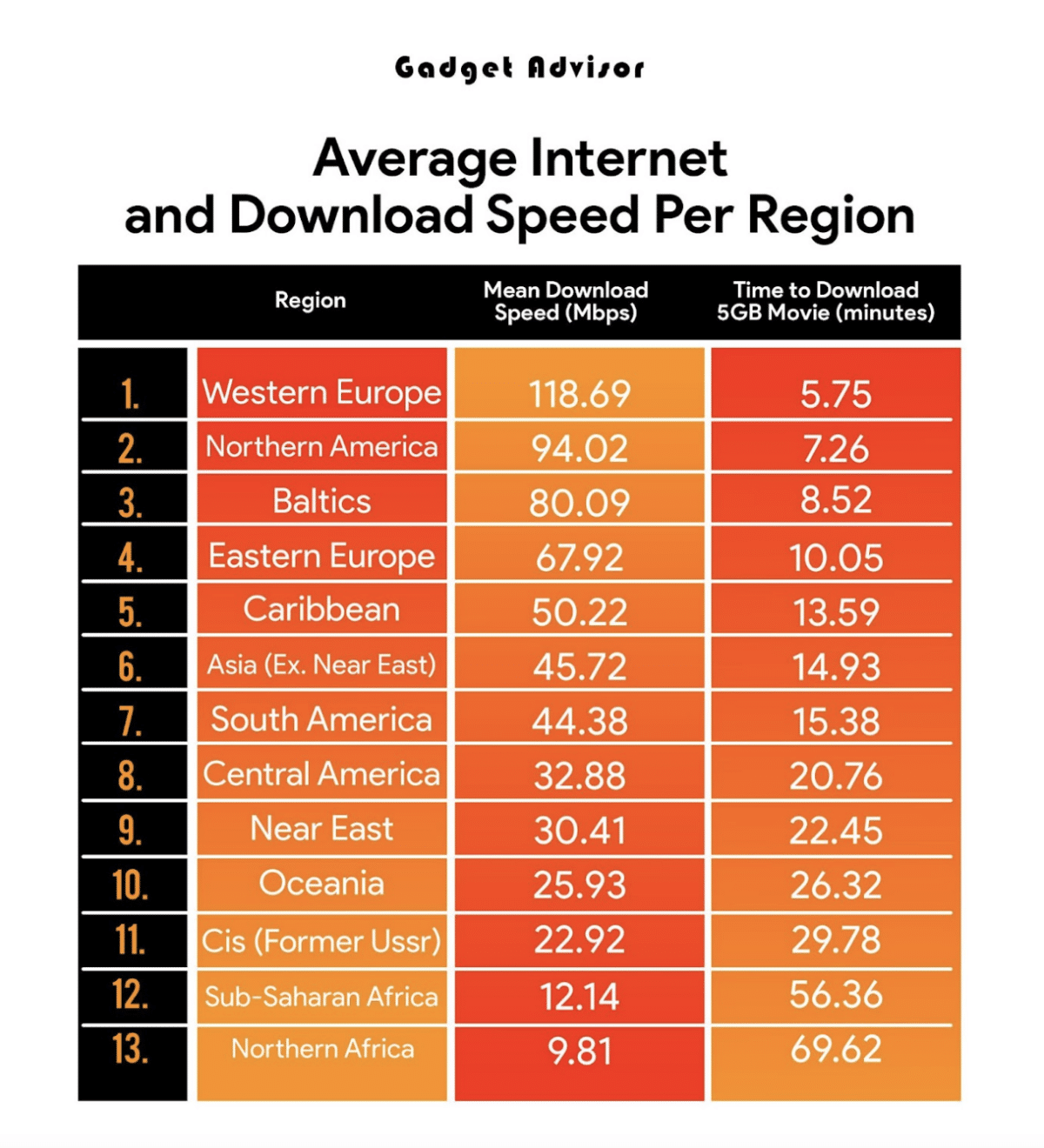
Western Europe takes the lead with an impressive average download speed of 118.69 Mbps, enabling a 5GB movie to be downloaded in just 5.75 minutes. Trailing closely are Northern America and the Baltics, boasting average download speeds of 94.02 Mbps and 80.09 Mbps respectively.
Eastern Europe and the Caribbean secure the fourth and fifth spots, with average download speeds of 67.92 Mbps and 50.22 Mbps respectively. The rest of the top ten is filled by Asia (excluding the Near East), South America, Central America, Near East, and Oceania, with average download speeds ranging from 45.72 Mbps to 25.93 Mbps.
Diverging Paths: Western Europe, Northern America and Baltics
Western Europe leads with an average download speed of 118.69 Mbps, significantly enabled by the initiatives like the proposed Gigabit Infrastructure Act by the EU, aiming to facilitate the faster, cheaper, and simpler rollout of Gigabit networks. However, the journey towards ‘Gigabit Europe’ is lagging with very few households and businesses across Europe actually getting Gigabit broadband speeds despite official claims, and some advanced European countries are slow to improve broadband speed.
In Northern America, the scenario is slightly different. The region holds the second position with a mean download speed of 94.02 Mbps. Federal funding is playing a crucial role in improving and expanding high-speed broadband internet access. The Broadband Equity Access and Deployment Program, authorized by the $1 trillion 2021 infrastructure law, has allocated $42 billion to make access to high-speed broadband universal by 2030. In addition, the United States, representing Northern America, has an impressive speed of 136.48 Mbps, suggesting substantial infrastructural investments.
The Baltics hold the third position with a mean download speed of 80.09 Mbps. The region has been successful in implementing high-speed internet access, with countries like Lithuania leading in terms of speed. The success can be attributed to factors such as early spectrum availability and supportive government policies.
Struggle for Internet Speed: Eastern Europe to the Caribbean, South America to Oceania
Eastern Europe and the Caribbean are in the fourth and fifth positions of the fastest regions in the world. In Eastern Europe, countries like Slovakia have achieved high download speeds. However, there’s a significant gap in fixed broadband speed between Eastern Europe and more advanced economies.
In the Caribbean, despite having countries like Cayman Islands with high download speeds, less than half of the region has fixed broadband. This indicates a need for more investment in digital infrastructure to improve internet access and speeds.
From South America to Oceania (ranks 7 to 10), these regions face various challenges in improving their internet speeds. In South America, less than 50% of the region has fixed broadband. Central America faces similar issues with Panama leading in terms of speed. In Near East, Israel stands out with a decent speed of 75.03 Mbps, but the region as a whole lags behind.
Oceania faces unique challenges due to its geographical dispersion and remoteness of islands. Despite these challenges, New Zealand has managed to achieve impressive download speeds.
Digital Divide: Northern Africa and Sub-Saharan Africa
Northern Africa and Sub-Saharan Africa are at the bottom of the list, with mean download speeds of 9.81 Mbps and 12.14 Mbps respectively. Despite the low average speeds, there are countries within these regions that have made significant strides in improving their internet speeds.
In Northern Africa, Morocco leads with a download speed of 16.49 Mbps. Over 80 percent of Moroccan households have internet access at home, indicating a strong digital infrastructure. However, other countries in the region like Algeria and Libya lag behind with slower speeds.
Sub-Saharan Africa faces unique challenges due to a lack of adequate investment and infrastructural development. Despite this, the region has seen rapid growth in digital infrastructure, spurred by strong investment incentives. Réunion, an island in the Indian Ocean that is part of the region, has managed to achieve a download speed of 45.51 Mbps.
Road Ahead: Bridging the Great Internet Divide
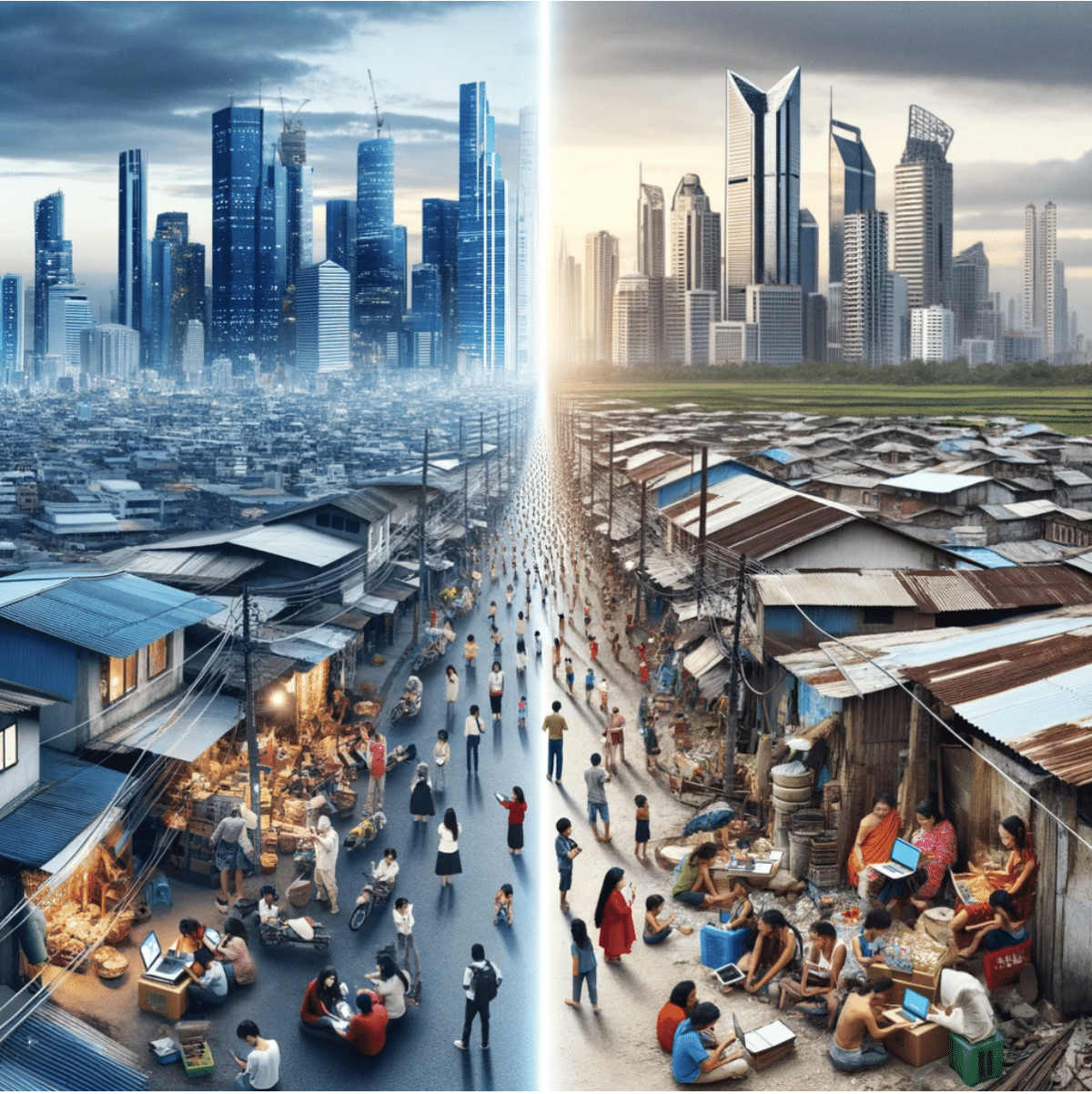
Our global internet speed rankings highlight the digital divide that exists globally. While some countries and regions enjoy high-speed internet, others are still struggling with slow speeds and inadequate digital infrastructure. This disparity is not just about the convenience of downloading a movie quickly or streaming in high-definition; it’s about access to essential digital services, participation in the global digital economy, and the ability to leverage digital technologies for socio-economic development.
As we move forward, it’s imperative for countries, especially those lagging behind, to invest in digital infrastructure, foster favorable regulatory environments, and implement policies that promote digital inclusivity. Bridging the digital divide is not just a technological challenge, but a critical step towards global inclusivity and sustainable development.
FAQs
Jersey has the fastest internet speed with a mean download speed of 264.52 Mbps.
The top 5 countries are Jersey, Liechtenstein, Macau, Iceland, and Gibraltar.
Afghanistan has the slowest internet speed with a mean download speed of 1.71 Mbps.
Western Europe has an average download speed of 118.69 Mbps.
The United States ranks twelfth in global internet speed rankings with a mean download speed of 136.48 Mbps.
Northern Africa has the slowest average internet speed with a mean download speed of 9.81 Mbps.
Canada ranks thirteenth in global internet speed rankings with a mean download speed of 136.08 Mbps.

